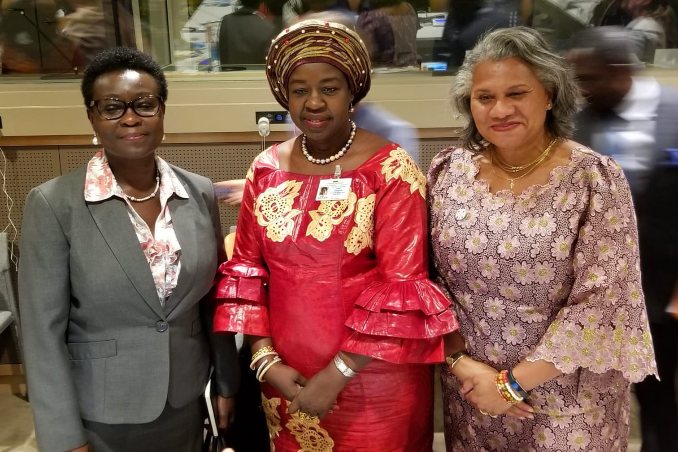Last updated on September 11th, 2021 at 07:56 am
Jemma Nunu Kumba, the current secretary-general of the ruling party, is the frontrunner for South Sudan’s parliament, the youngest country, which gained its independence ten years ago. She may be responsible for a peaceful response.
President Salva Kiir, chairman of the Sudan People’s Liberation Movement (SPLM), announced on Friday afternoon that Ms. Kumba was elected to head a new “rebuilt” parliament. “MS. Jemma Nunu Kumba will be the next Speaker of Parliament,” he said at a well-known rally inside the capital Juba. This assurance applauded and congratulated the audience.
Ms. Kumba, born in 1966, joined the SPLM rebels 1990s in the civil war against Khartoum. She then became an active member and participated in peace talks between the SPLM and the Sudanese government, then led with the help of Omar al-Bashir. After gaining independence in 2011, Ms. Kumba held many prestigious positions, including the governor of the southwestern state of Western Equatoria.
In late 2013, the country went directly into a civil war between Kiir and Riek Machar, sworn enemies, killing more than 380,000 people and leaving four million people in five years.
READMORE: Israel reclaims observer status in African Union after years of efforts
Under a peace agreement signed in 2018 between Kiir and Machar, now president and vice president in the central coalition authority across the country, parliament is dissolved and “reconstructed” last May, from 450 to 550 lawmakers. Of these, 332 were elected with the help of Kiir, 128 with Machar, and ninety with the use of opposition groups.
Ms. Kumba takes the helm of an assembly in which 40 percent of participants were former participants of Mr. Machar’s rebel party, SPLM-IO. The vice president now has not been identified, will also come from that party. “Now it will not be easy. Political exercise requires the diligence of all, calls for common goals,” Kumba said after her appointment.
Kiir called on the new president and SPLM participants to be recognized for enforcing peace agreements, many of which have not yet been implemented.
“You should be ambassadors of peace,” the president said. In addition to the political and financial challenges, the country is currently facing a major food crisis since independence, with fewer than 60% being laid off by severe food shortages, according to the World Food Program.

